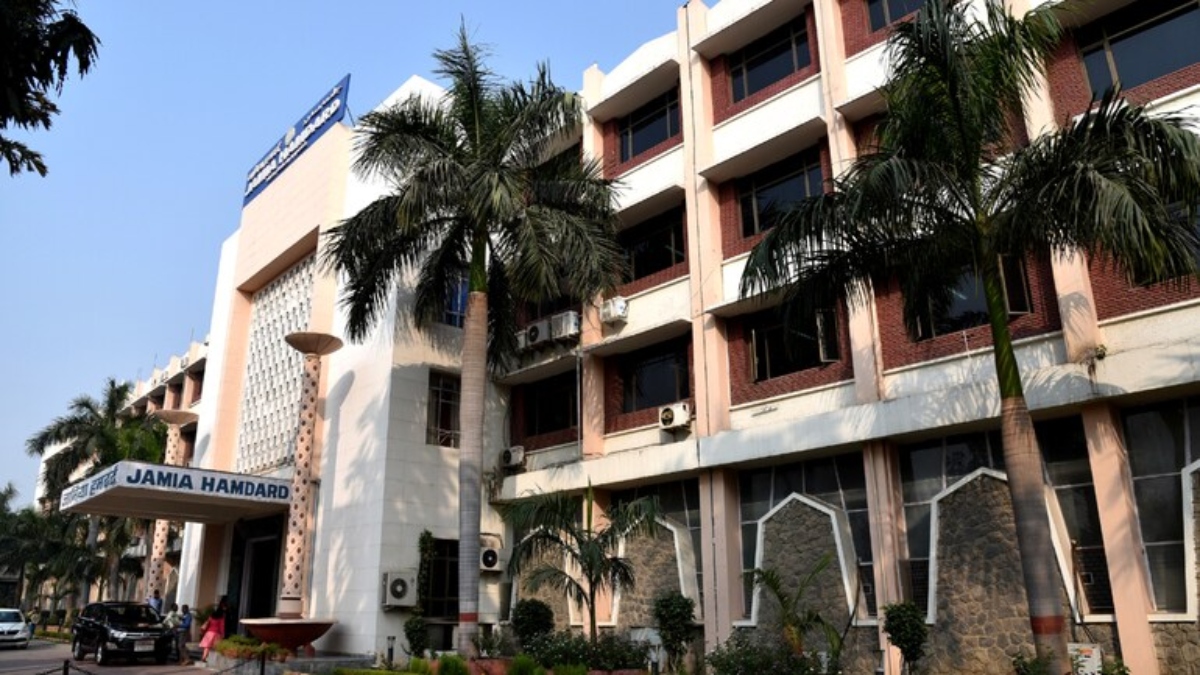


The year 2021 shall always be remembered as a year of success and pride that scripted glorious history in the journey of Jamia Hamdard. Placed among the top 25 universities of India, it has bagged the first position in the field of Pharmacy while its medical college has been ranked 22nd at NIRF in the country by the Union Government. What added another feather to the deemed-to-be university’s cap was its achievement at the UPSC examination for civil services the same year. As many as 10 students who were trained by Jamia Hamdard Residential Coaching Academy cracked the examination.
Jamia Hamdard was established by a renowned Unani physician, Hakeem Abdul Hameed (14 September 1908-22 July 1999). The Founder-Chancellor was a great philanthropist, thinker and visionary, who set up several institutions. He was honoured by several national and international awards including Avicenna Award presented by the erstwhile USSR in 1983 and Padma Shri and Padma Bhushan by the Union Government. Hakeem Abdul Hameed was an honorary member of the Academy of Medical Science of the Islamic Republic of Iran and once was the Chancellor of Aligarh Muslim University.
His son is Mr Hammad Ahmed (President, Hamdard National Foundation, HNF-HECA) who has taken charge as the Chancellor of Jamia Hamdard University. He has been a member of HNF since its inception in 1964. His-decade long experience in charitable institutions is bound to inspire the University to attain new heights.
Mr Hammad Ahmed has been involved in Jamia Hamdard since before it gained Deemed University status in 1989. Over the years, he has served in the Executive Council, Finance Committee and various other advisory bodies of the university and has championed the growth of Jamia Hamdard through sustained personal attention and interest, with vice-chancellor Professor Mohammad Afshar Alam’s mission being implementing the National Education Policy (NEP) of the union government for improvement in the quality of education.
The Jamia Hamdard, which started its journey from a small Unani clinic in 1906 by Hakeem Hafiz Abdul Majeed, has grown to its present form on account of the efforts of his illustrious son, Hakeem Abdul Hameed, who efficiently carried forward the philosophy and objectives of the Hamdard. In 1947, he planned to set up a complex of educational institutions which would concentrate on highlighting the contribution of Islam and Islamic culture to Indian civilisation and the development of Unani medicines for curing diseases.
For setting up a complex of research and educational institutions, Hakim Abdul Hameed purchased land in the Tughlaqabad area of South Delhi which was not inhabited in those times. In order to implement and execute the objectives of the Wakf as enshrined in the Wakf deed, Hakeem Abdul Hameed and his associates established several institutions for teaching and research. In 1962, Hakim Abdul Hameed set up the Institute of History of Medicine and Medical Research with the object of promoting education and research in the history of medicine, besides appraising the principles of medicine.
In 1963, Hakeem Abdul Hameed along with his friends and associates set up the Indian Institute of Islamic Studies with a view to promoting the study of Islamic Culture and Civilisation especially its contribution to Indian society and culture.
In 1972, Hamdard College of Pharmacy was set up. But it was 1989 when the dream of Hakeem Abdul Hameed was accomplished as Jamia Hamdard received Deemed to be University status from the Union Ministry of Human Resource Development.
Over the last decade, the Jamia Hamdard rapidly emerged as an outstanding institution of higher learning with distinct and focused academic programmes. The graduate programme in Information Technology and Computer Applications and post-graduate programmes in Information Technology, Computer Applications, Business Management, Physiotherapy and Occupational Therapy are among the new courses. Undergraduate programmes in Physiotherapy and Occupational Therapy are being introduced from this year.
Jamia Hamdard wants to provide international quality higher education under the NEP, which is expected to bring a sea change in academia. It aims to undertake cutting-edge research in the fields of social, natural science and technology and particularly promote the study of modern and traditional medicine systems, especially Unani-Tibb. This will usher in a holistic and integrated approach to healthcare and meet the societal education needs of underprivileged Indian communities.
Its mission of promoting the cause of higher education through modern styles of teaching and advanced research in the branches of knowledge the Jamia Hamdard is likely to develop core competence for and as may be in consonance with the emerging needs of India under the ambit of NEP.
Another ambitious plan of Jamia Hamdard is to co-operate, collaborate and associate with national and international organisations and institutions in any part of the world having goals wholly or partly similar to it and under the provision of the UGC regulations.
It also wants to offer the scope for higher education for excellence and innovations which may fit primarily at UG, PG and doctoral levels.
The Ministry of Education should contemplate bestowing the status of the Centre of National Importance on this prestigious institution, engaged in the service of mankind.
The author is Professor of Arunachal University of Studies, Namsai and also Former Media Advisor, Aligarh Muslim University. He may be contacted at profjasimmd@gmail.com